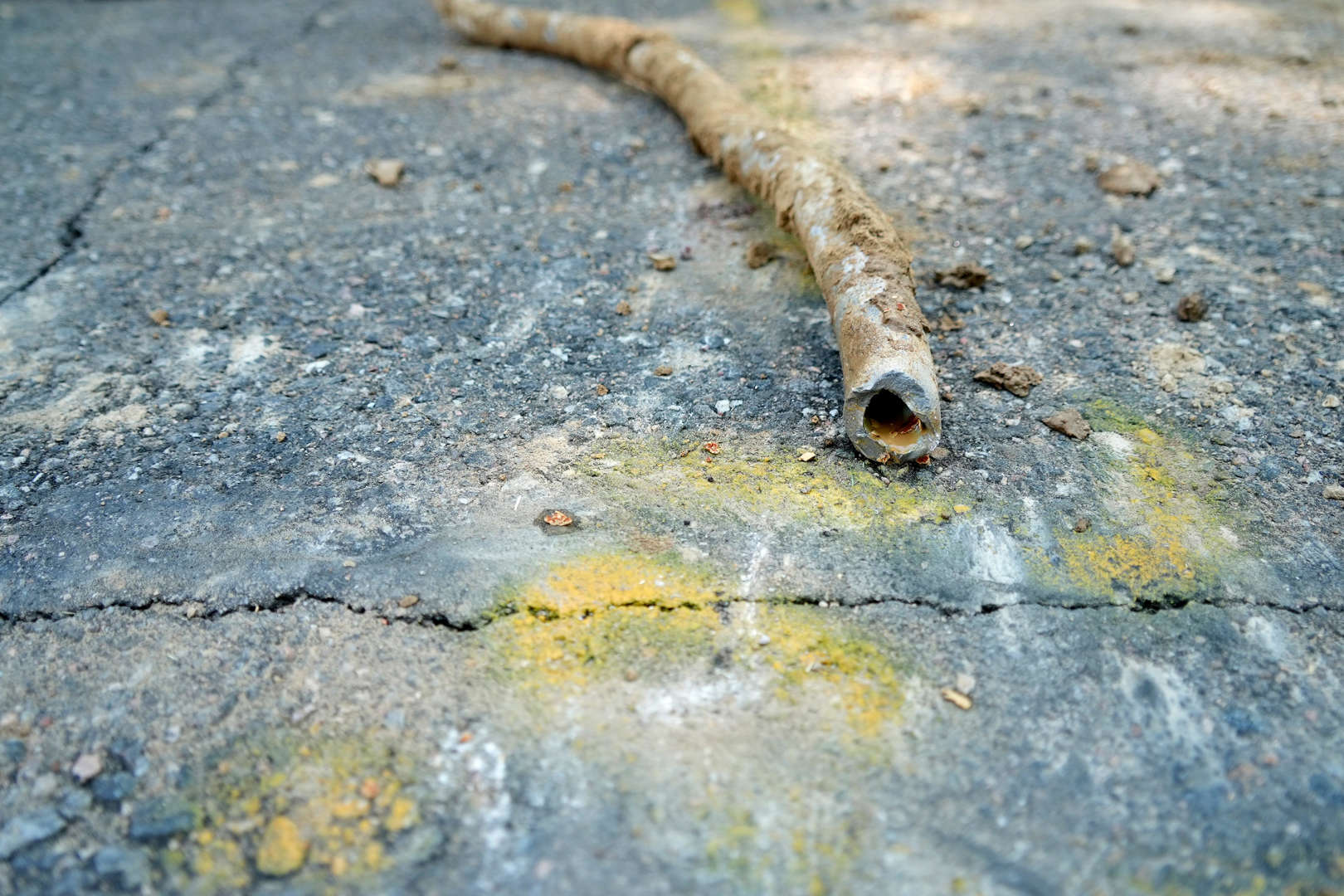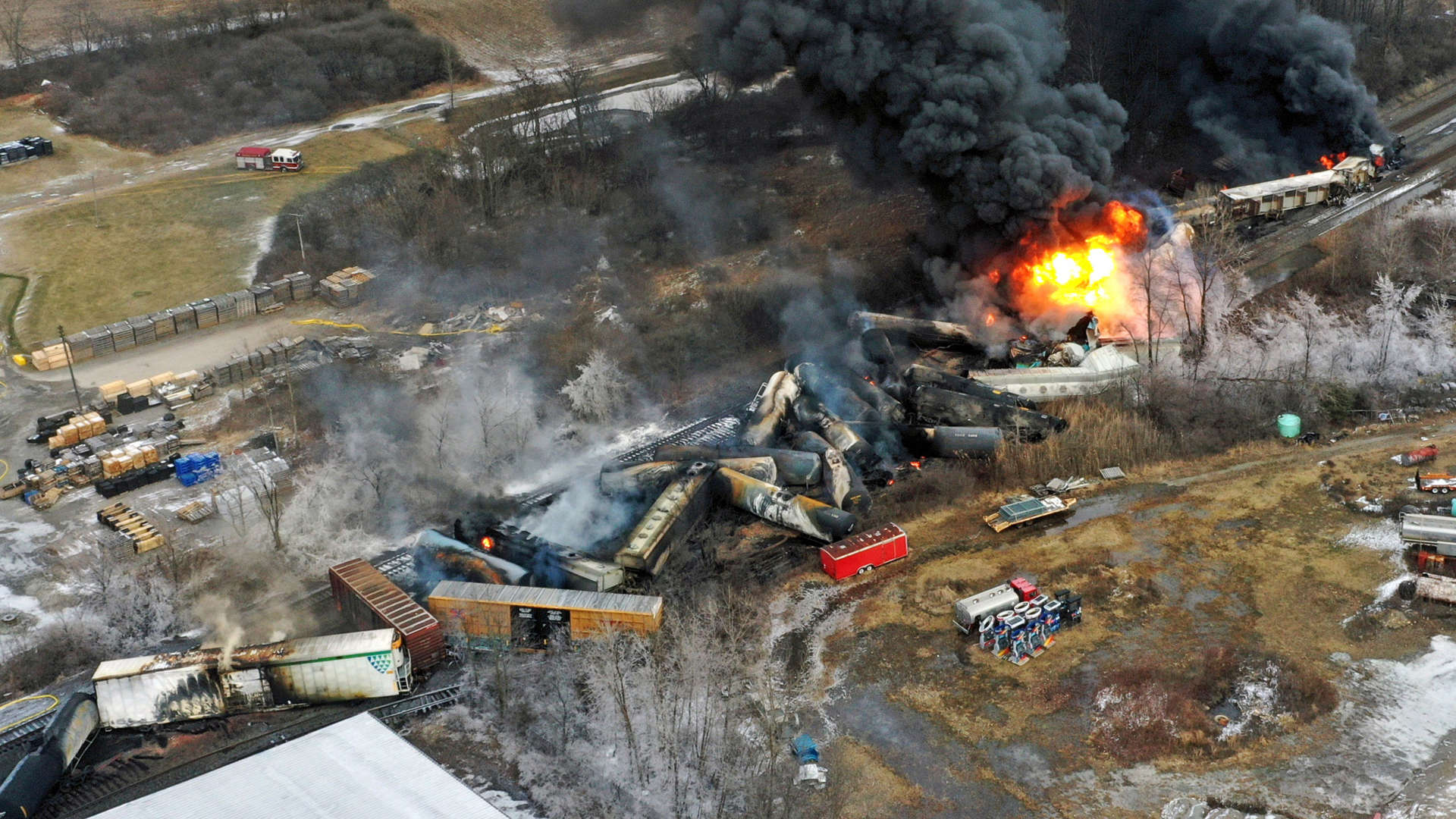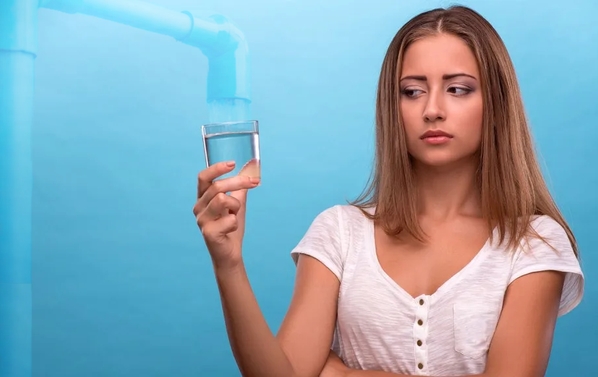Health and Wellness
Health Risks from PVC Pipes in Drinking Water Systems
A report from a coalition of U.S. environmental advocacy groups has warned of the health risks of PVC plastic and urged public officials against using the material in community drinking water pipes.
PVC is made with vinyl chloride, the same hazardous material released in the fiery train derailment that triggered a public health and environmental crisis in East Palestine, Ohio. It's also a known carcinogen and endocrine disruptor.
Yet, because of its relatively low cost, PVC – polyvinyl chloride – has become a popular option for communities replacing old drinking water pipes and, in particular, the lead pipes and service lines that carry their own public health risks. In 2021, the Biden administration allocated $15 billion through the U.S. Environmental Protection Agency's Drinking Water State Revolving Fund for communities coast to coast to replace lead service lines.
The report's contributors criticized the EPA for issuing no guidance on which piping materials should be used for such projects.
"In the months and years ahead, this new federal money will be flowing to state and local governments, and it's unfortunate the EPA is not providing any guidance on what is a safe substitute for lead service line pipes,"
said Judith Enck, a former regional EPA administrator and the president of Beyond Plastics, a nonprofit environmental group based at Bennington College, Vermont.
Beyond Plastics released the report Tuesday along with two other nonprofit environmental advocacy groups: Environmental Health Sciences and the Plastic Pollution Coalition.
EPA spokeswoman Dominique Joseph did not respond directly to the criticism but confirmed the agency has no requirements for plumbing materials except that they be lead free. She said that the EPA "supports independent, third-party testing standards for plumbing materials under NSF/ANSI 61*, which has been incorporated into many state and local plumbing codes.
*NSF stands for the National Sanitation Foundation, and ANSI stands for the American National Standards Institute.

A lead water service line from 1927 lays on the ground on a residential street after being removed on June 17, 2021, in Denver. Some 9.2 million lead pipes carry water into homes across the U.S., with more in Florida than any other state, according to an Environmental Protection Agency survey that will dictate how billions of dollars to find and replace those pipes are spent.
© Brittany Peterson, AP
Enck said,
"the report raises legitimate concerns about the health consequences from chemicals in PVC pipes leaching into the drinking water. Instead of PVC or CPVC – chlorinated polyvinyl chloride"
Enck said "communities should use safer alternatives like stainless steel or copper even if those materials cost more".
"When people say that plastics is cheap, they are dead wrong," Enck said at a virtual news conference Tuesday.
"The price is paid widely and for decades through health care costs and tax dollars."
The Consumer Product Safety Commission banned the use of vinyl chloride in aerosols in 1974, but the chemical is still used in other products and remains a key component in PVC pipes.
The global PVC pipe market is on the rise, fueled in part by the increasing demand for PVC pipes in water, sewage and irrigation projects, according to several industry trend reports.
PVC was cited as the preferred material for water infrastructure projects in a 2021 survey of more than 200 contractors, engineer and municipal officials by the Accountability Information Management, a marketing research company. Respondents said they anticipate using PVC pipes in nearly 65% of all water projects.
But not all communities are turning to PVC.
For its lead service line replacement project, the city of Troy, New York, opted instead for copper, said Troy's deputy director of public information, Frank Sainato.
"We only use copper, because copper is tried and true," he said. "It may cost more, but public safety is always worth the extra expense."
Sainato said the city expects to break ground this year.
Rochester, New York, just three hours to the west, also avoided PVC for its lead service line replacement program, said public information director Barbara Pierce.
“The City of Rochester does not use PVC or CPVC for water service material, instead it uses copper and cross-linked polyethylene pipe, which does not contain polyvinyl chloride or vinyl chloride,” Pierce said in an email to USA TODAY.
“All water service pipe the City uses – along with all other materials used in the water system – is certified for use in potable water systems by the National Sanitation Foundation, AWWA, and approved for use by both USEPA and NYSDOH.”
A woman who answered the phone at Uni-Bell PVC Pipe Association – a national nonprofit organization that touts itself as “the authoritative source of information on PVC water, sewer, and reclaimed water pipe" – said nobody there would want to comment on the report.
In a statement to USA TODAY, a spokesman for the American Chemistry Council did not specifically dispute the report but said that PVC has 35-45% "less lifecycle greenhouse gas emissions compared to iron pipes, and PVC pipes used for delivering drinking water are certified by NSF International to conform to EPA safety regulations."
In addition to highlighting the health risks from PVC chemicals leaching into the water supply, the report noted the health and environmental consequences involved in the production of vinyl chloride used to make PVC.

A Feb. 4 drone photo shows portions of a Norfolk Southern Railroad freight train that derailed in East Palestine, Ohio. More than 100,000 gallons of vinyl chloride were released and burned.
© Gene J. Puskar, AP
"The East Palestine train derailment is emblematic of that risk", said Mike Schade, a program director of the environmental health research and advocacy organization Toxic-Free Future, during the virtual press conference.
Since the derailment Feb. 3, people living in and around East Palestine have reported numerous health symptoms including headaches, sore throats, eye irritation and coughing.
Schade said, "people who live near facilities involved in the production of vinyl chloride face those risks and more". "These communities", he said, "are disproportionately low-income and minority".
“It is deeply troubling that more than 10 billion pounds of vinyl chloride are produced in a year, and low-income communities and communities of color are bearing the brunt of these harmful exposures,” Schade said.
“We all know that lead is toxic, but so is PVC pipe, which is known as the poison plastic. If EPA is truly committed to environmental justice, they would ban local and state governments from using PVC pipe to replace lead service lines.”
This article originally appeared on USA TODAY: New report warns about human health risks from PVC pipes used in drinking water systems.





